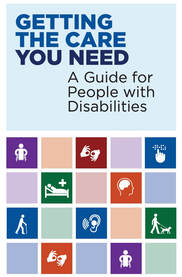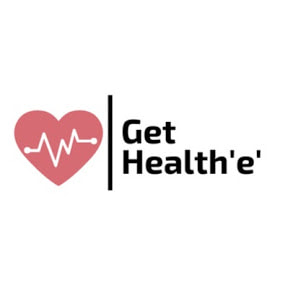health care
All people need to get health care, but some people with disabilities may need to see a lot of different doctors.
Read below to learn about different types of doctors and how to get the most out of your doctor visit.
Read below to learn about different types of doctors and how to get the most out of your doctor visit.
|
Primary care
Primary care refers to the doctor (or nurse or physician assistant) you see who manages most of your health issues. They are the person you usually call if you are feeling sick or need a physical exam. As an adult, you might see an internist (who treats adults only). You might also see a family medicine doctor who has additional training to treat people of all ages. They can refer you to a specialist (list below) if you need help from a health care provider who knows a lot about a particular health issue. Pediatric care
Pediatrician: this is a primary care provider who treats babies, children and adolescents Developmental pediatrician: this is a pediatrician who has extra training to help provide care to children with developmental or learning disabilities Specialists listed below sometimes have a pediatric specialist who specifically treats children. Specialists
Many people with disabilities need to see medical specialists. These are health care providers who focus on particular parts of the body or conditions. Below is a list of specialists and what they do. Sometimes, a specialist will not be available in the area where you live. You may need to travel to see a specialist. Talking to primary care doctors and also other parents can help you find what specialists to go to and who to see. Also, some medical facilities have centers that are designed to help people with disabilities get care and connect them with the different doctors they need to see. One example is the University of Iowa Stead Family Children's Hospital. Allergist/Immunologist: helps with allergies, asthma and other related conditions Audiologist: helps with hearing loss and conducts hearing tests; not a medical doctor (they have am AuD, doctor of audiology degree) Cardiologist: helps with the heart and blood vessels Dermatologist: helps with skin, hair and nail problems such as eczema and skin cancer Endocrinologist: helps with conditions related to hormones such as thyroid issues, diabetes, and growth hormone Gastroenterologist: helps with problems with digestive organs such as the stomach, liver, intestines, colon and gallbladder Genetics: helps with genes; there are different types of providers, some are medical doctors and some are not Gynecologist/Obstetrician: a gynecologist helps with female reproductive health (such as uterus and ovaries); an obstetrician helps with pregnancy and delivers babies Hematologist: helps with blood problems such as anemia and clotting disorders Nephrologist: helps with problems of the kidney Neurologist: helps with issues related to the brain and nervous system Oncologist: helps treat cancer and provide care to cancer patients Ophthalmologist: helps with eyes and vision, including surgeries Optometrist: helps with eye exams and visions tests and some other eye related care; not a medical doctor (they have an OD, doctor of optometry degree) Optician: help with getting eyeglasses and contact lenses; not a medical doctor Rheumatologist: helps with autoimmunune diseases including rheumatoid arthritis and lupus |
Health information
It can be hard to find reliable information about health online. Some useful websites about children's health include: 
Health care visits
Sometimes it can be hard to know how to prepare for a visit or to know what to do to get the most out of your visit. There is an easy to follow guide that can help called "Getting the Care you Need". It is written especially for people with disabilities. Some medical facilities have special services to help people with disabilities such as this one in Boston: Massachusetts General Hospital Disabilities Program It is always worth asking if extra help is available before you go! Here are some tips to help prepare for doctor visits.
Health care providers should give you all of the information you need during a visit but sometimes it can be confusing. There is a plan called ASK ME 3. The idea is you should know the answer to these 3 questions before you are done with the visit. They are:
You should feel free to ask your health provider these questions. This video tells you more about this. Sometimes it can be hard for people with disabilities to get and use health care services because of different barriers. Watch this video to learn more about the experiences of people with disabilities getting health care.
|
